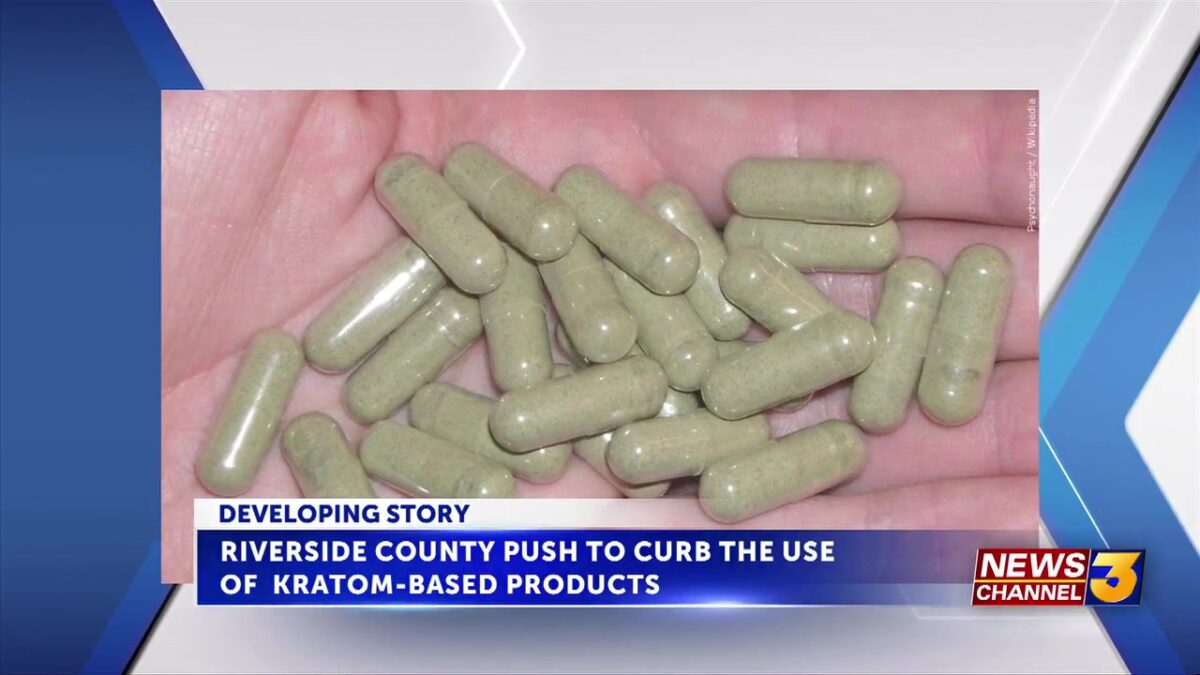Board adopts ordinance regulating sales of kratom-based products

City News Service
RIVERSIDE, Calif. (KESQ) – The Board of Supervisors today formally approved a Riverside County ordinance intended to curb the use of synthetic pain-relieving products that the U.S. Drug Enforcement Administration may add to the nationwide list of controlled substances.
In a 5-0 vote, the board signed off on the county Executive Office’s implementation of regulations aimed at deterring sales and marketing of kratom derivatives, mainly to minors.
“You have the sheriff’s department and other agencies supporting this,” board Chairman Manuel Perez said after the second reading of Ordinance No. 1004. “It’s the right thing to do.”
During the ordinance’s first reading last week, Chief Executive Officer Jeff Van Wagenen admitted that he had “never heard” of kratom until earlier this year.
“We’ve tried to identify the most dangerous aspect of this,” he said.
The main emphasis is on so-called “7-OH” products, which contain alkaloids produced using biosynthetic methods. The 7-OH derivatives are based on kratom leaf or kratom leaf extracts originating from a tropical plant native to Southeast Asia, officials said. Their properties have pain-relieving influences similar to morphine and heroin.
“The 7-OH concentrated synthetic products are often promoted as dietary supplements,” Sacramento-based California Narcotics Officers’ Association Legislative Advocate Ryan Sherman told the board on Oct. 21. “These products come in various forms, like concentrated liquid extract, and can significantly increase adverse potential life-threatening effects, especially when 7-OH is combined with alcohol and sedatives.”
In July, the U.S. Food & Drug Administration requested that the DEA formally review kratom derivatives like 7-OH and consider placing them on the federal list of controlled substances, which would result in stringent regulations. That evaluation is underway.
“Highly concentrated and synthetic kratom-based products — marketed in the form of powders, capsules, gummies and `energy shots’ — have proliferated in the U.S,” the Executive Office said in a statement. “These products are commonly sold online, in smoke shops and at convenience stores, often with no quality control or labeling standards.”
The California Legislature is sorting out possible statewide restrictions on 7-OH sales, after a similar proposal in the previous legislative session died in the Senate. In the meantime, localities have established their own regulations.
The Orange County Board of Supervisors approved a measure in August, following related actions in the cities of Jurupa Valley, Newport Beach, Oceanside, San Diego and Solano Beach, all of which now regulate some 7-OH marketing and sales.
The Riverside County regulatory scheme, which applies only to unincorporated communities, bars the sale of 7-OH products that contain more than 2% of alkaloids to anyone under 21 years old and imposes penalties for marketing of the derivatives to youths via advertisements or brand packaging.
Violations may result in potential misdemeanor criminal charges and fines.